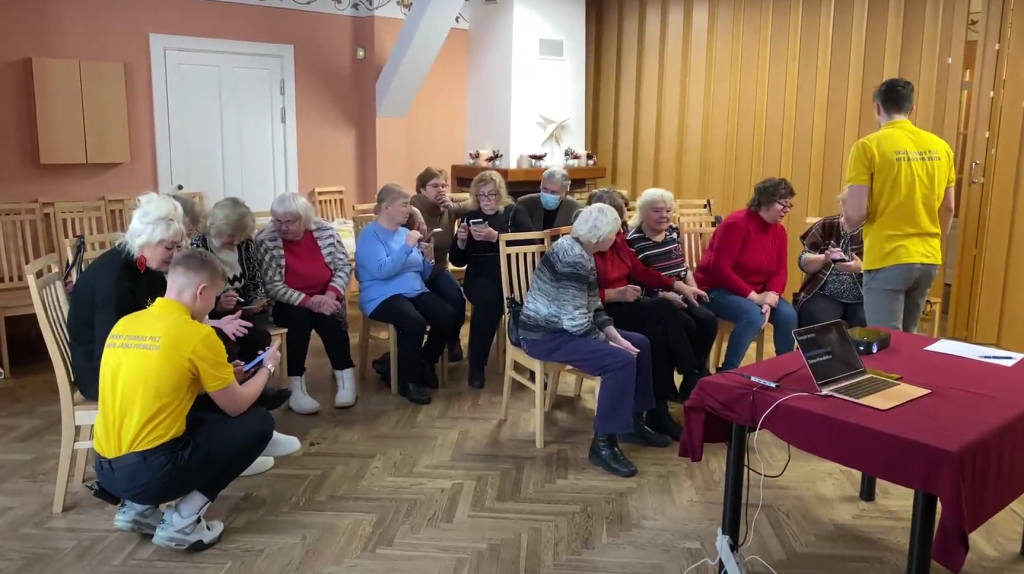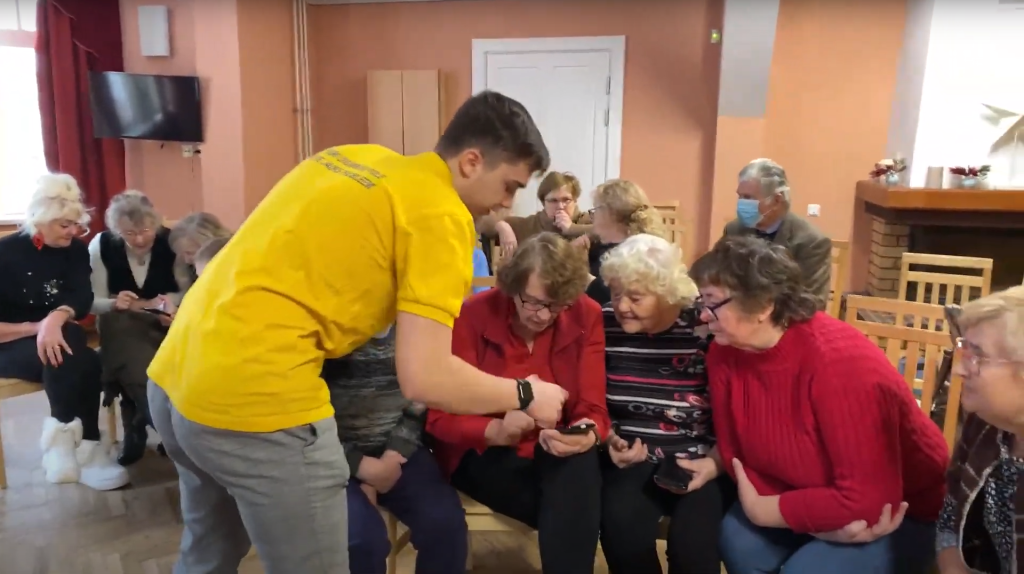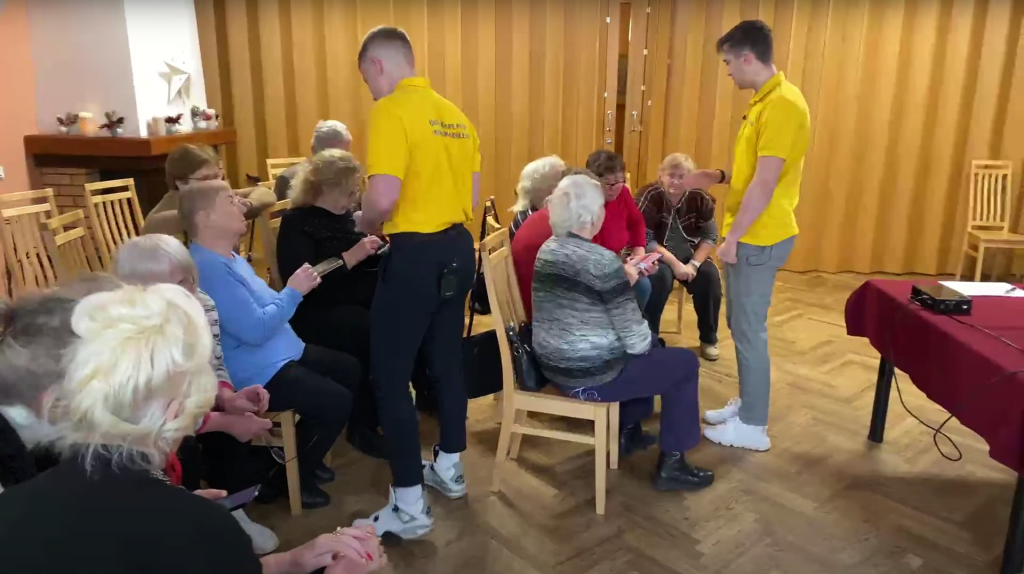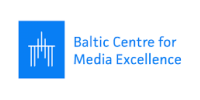Insights from Estonia’s Digimentor Project and Strategies for Advancing Media Literacy among Seniors
Inger Klesment
29.02.2024
The Digimentor project, conducted from September 2023 to May 2024 by Estonian high school students Marcus and Stefan and supported by Telia, targets enhancing media literacy among older adults through workshops on a variety of topics. From artificial intelligence to Facebook, internet safety, and practical skills like photography and managing mobile applications, these sessions provide older adults with the tools to navigate the digital world safely and confidently.
Insights and practical advice from Estonian digimentors offer essential guidance for future initiatives aiming to empower the elderly with digital skills.
Tailoring Teaching Conditions for Older Learners
The Digimentors have found that practical sessions outperform traditional lectures, promoting better engagement and understanding. Also, patience and clear communication are vital when addressing challenges such as the elderly’s lack of proficiency in English and cognitive decline. “For example, they don’t understand how digital functions correlate with each other. For instance, they don’t grasp the Google Account system very well,” explained Stefan.
Marcus added, “Also, creating connections between icons and functions – icons may not seem obvious to older adults, leading to questions about their purpose. For example, Google Docs has numerous icons, requiring extensive trial and error to ensure proper usage.”
Furthermore, tailoring workshops to accommodate diverse participant groups is essential. This involves providing necessary equipment, ensuring a spacious and comfortable environment, and managing group sizes effectively. Interactive teaching approaches, including visual demonstrations and simplified explanations, help reinforce learning and engagement.

Stefan emphasized the importance of keeping the group size manageable, stating, “The group should not be too large, over 20 people, because then it is simply not possible to help everyone. For example, if we currently have 3 computers and more than 15 people show up, it can be difficult for some to understand, as they cannot see what is happening on the device.”
Marcus agreed, adding, “The group size should be between 10–20 people; beyond that, the discussion may become scattered, and participants may start side conversations, which can be difficult to manage.”
In situations where creating small groups isn’t possible, an alternative for larger audiences is to demonstrate on a big screen what needs to be done. This method allows participants to grasp the process effectively by visually seeing where to click, etc. For instance, when introducing computer skills, this approach proved highly effective as individuals could quickly comprehend the steps by observing clear visual instructions.
The Estonian digimentors recognize the challenge of adapting teaching materials and workshops to work with varying numbers of participants and skill levels. They specifically point out the difficulty faced when someone with little experience and a weak skill level joins the group unexpectedly, making it challenging to conduct the session effectively.

Effective Learning Strategies for Elderly Participants
To enhance interactivity and educational value in workshops, both Stefan and Marcus suggest a lot of practical experimentation to ensure seniors remember the material best. Marcus emphasizes the significance of selecting topics that spark interest among the elderly participants. He states, “Certainly, the topic must interest the seniors. Practical activities, whether on their devices or those provided by us, help to reinforce what was covered in the session.”He added that the topics covered in the workshops are relevant and useful, leading many elderly participants to integrate digital tools into their daily lives.
So far, seniors have gained practical skills and knowledge that they can apply in real-life situations. For example, the participants have learned to search for videos on YouTube. Marcus added, “We have covered various Google services with the elderly, such as Google Docs, Slides, etc. Additionally, they have learned about photography, and photo editing, as well as downloading and using applications, understanding their main functions.”
Reflecting on the achievements observed in the workshops, Stefan mentioned Leili, an elderly participant who has attended from the beginning and acquired numerous skills applicable to daily life. Marcus shared another success story, mentioning elderly participants who, after initially learning about a specific topic, returned to the workshop to teach their peers. For instance, an elderly individual who had practiced using Google Docs came back to demonstrate specific functions to fellow participants.
Regarding the application of digital skills, Stefan mentioned an elderly participant who has started using Facebook more frequently, showing their increased engagement with social media platforms for communication and overall connectivity.

Using Digimentors’ Experience for Project Expansion
Both Marcus and Stefan are on the same page about using past examples and experiences to grow and expand the project. Reflecting on the experiences gained from the Estonian project, Stefan suggested starting with the use of day centers because most active elderly individuals gather there.
In the conversation about how to engage youth in Latvia and Lithuania, Stefan proposed the idea of involving schools through hands-on projects for young people. Meanwhile, Marcus suggested the concept of workshops resembling summer camps, where participants could not only gain marks on their CVs but also potentially earn financial benefits.
When considering the challenges and opportunities of extending the project to other Baltic countries, Stefan pointed out the difficulty of motivating youth to participate. Meanwhile, Marcus highlighted the significance of building interest and trust among the elderly, crucial for them to feel comfortable granting strangers access to their devices and data. In terms of challenges and opportunities in expanding the project to other Baltic countries, Stefan highlighted the challenge of motivating youth to join the project. Marcus emphasized the importance of generating interest and trust among the elderly to allow strangers access to their devices and data.

Engaging and Motivating Youth for Digital Inclusion
Involving young individuals in projects like BECID Digimentor has been crucial for sustaining motivation and enthusiasm. Stefan highlighted personal fulfillment as a significant motivator, stating, “I feel motivated by the need to achieve something. When I see other young people not engaging in anything meaningful, it reinforces my commitment to making a positive impact.”
Similarly, Marcus emphasized the importance of public recognition and future career prospects as motivating factors, stating, “Being recognized publicly and achieving success for the company is my primary motivator. Engaging in projects like this can pave the way for future career opportunities.”
Offering advice to aspiring youth participants, Stefan emphasized the value of gaining experience and building connections, adding, “They should try something like this because it provides fantastic experience and contacts that will undoubtedly be beneficial in the future. For example, I’ve learned valuable planning skills.”
Marcus recommended that young individuals develop confidence in public speaking and gain a comprehensive understanding of the various aspects of the relevant topic.
Describing their experiences to other young individuals considering joining the project, Stefan expressed enthusiasm, saying, “It’s been awesome 👍.” Marcus described the experience as both challenging and exciting, highlighting the wealth of knowledge and skills gained.

In conclusion, establishing media literacy initiatives for older adults requires careful planning, adaptability, and community engagement. By leveraging existing experiences and best practices, organizations can empower older learners to navigate the digital landscape with confidence and skill. Through continued collaboration and innovation, the journey toward digital inclusion for all generations remains promising and rewarding.
The Digimentor project is a part of BECID WP4, task 4.3.





